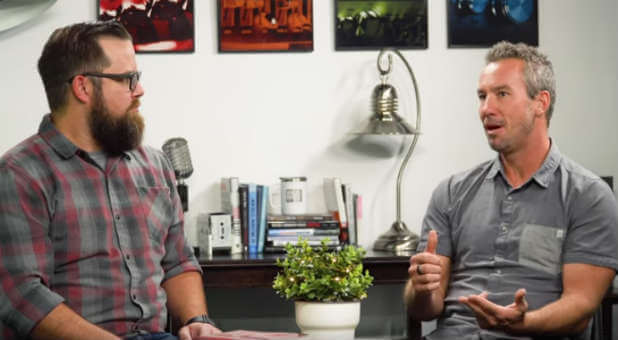For many Christians, whether or not to use a transgender or non-gender-conforming individual’s preferred pronouns (as opposed to their biological pronouns) can be a difficult matter. Believers want to show love to people who desperately need it, but they also want to affirm biblical truth.
Dr. Preston Sprinkle, founder of the Center for Faith, Sexuality, & Gender, is a defender of traditional biblical sexuality, but he believes that when people in the LGBTQ community prefer to be called a certain pronoun, Christians should be ready to meet them where they are—as a form of hospitality and love.
“Maybe they’re triggered; maybe they’ve had a bad experience—several of my friends might be biologically female, but they’ve spent years being stuffed into this real narrow feminine box,” Sprinkle says. “[Like,] wear a pink dress, wear your hair long, don’t play sports, don’t watch the Super Bowl. It’s just like nails on a chalkboard, so for some of my friends, when I say ‘she,’ it just triggers that, even though that’s not what I mean.
“But it’s a way of being hospitable—to use ‘they,’ ‘them’ or just use their name. Then maybe in the long run, they can develop a posture where they can be more at home in their biological sex. I think that’s a good goal to have, but you will never play a role in helping them get there if you just refuse to use the pronouns.”
Sprinkle says that if we’re not loving people well—including people who identify as gay—then we’re not accurately expressing the gospel message.
“As I was doing my research and trying to figure out what the Bible says about sexuality and marriage, I started to get to know a lot of gay people and just ask them about their journey and got to know them,” Sprinkle says. “The most common response I got was, ‘I’ve never met a Christian who just wanted to hear my story or was simply kind to me.'”
Although it’s important to uphold the Bible’s teachings on sexuality, Sprinkle believes it is equally important to love other people even when they’re in sin. He says Christians can start by becoming better listeners.
Do you agree with Sprinkle’s approach? How do you interact with and show the love of Christ to friends who are part of the LGBT community? Let us know in the comments. Of course, to watch the entire video (and hear Sprinkle’s full argument), click here.












